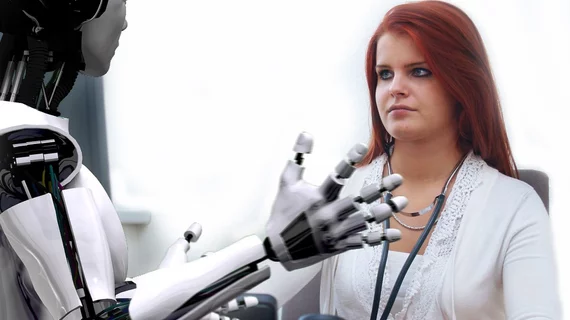Emerging hospital technologies well-funded, widely distributed in Europe
The European Commission has allocated approximately $47 million (40 million euros) to support researchers designing the “hospital of the future.”
A sizeable chunk of that sum, around $15.3 million, is going to a project led by a biomedical engineer in the U.K. whose team will use it to pilot healthcare AI, robotics and other cutting-edge technologies in six European cities.
In a news release sent by his institution, biomedical engineer Leandro Pecchia, PhD, of the University of Warwick says the project will “span from clinical to logistic procedures, including patient management, medical device and PPE management, disaster preparedness for example reorganizing hospitals in case of pandemics and hospital resiliency.”
Called ODIN, the project will proceed along three intervention pathways, according to the university. The work is aimed at eventually equipping healthcare workers with not only AI but also cybernetics and bionics, the university states.
ODIN researchers will additionally focus on enhancing hospital quality and safety with autonomous and collaborative robots, and managing medical sites and devices with IoT and video analytics.
These areas of intervention will be piloted at hospitals in Berlin, Paris, Rome and Madrid, along with Utrecht in the Netherlands and Lodz in Poland, Pecchia says.
The university adds that participating researchers will work with three major manufacturers of medical devices and seven small to medium-size enterprises to modernize hospital management using data-driven decision-making “the same way evidence-based medicine revolutionized medicine with data-driven procedures.”
This is the fifth project launched by Pecchia and team in the past 12 months, bringing the value of its funding to around $45.3 million, according to the university.

